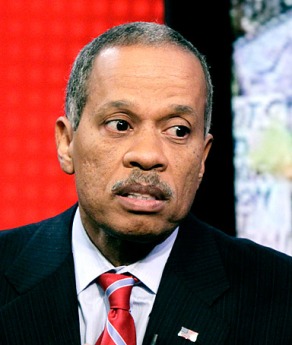There’s a very old fable of unknown origin that goes something like this…
A scorpion comes upon a river and asks a friendly frog for a ride to the other side. The frog laughs and says something like, “Are you nuts? You’re a scorpion. You’ll sting me!”

The scorpion replies, “Why would I do that? If I sting you, we’ll both go down.”
The frog shrugs in agreement and begins to carry the scorpion across the river. Halfway to the other side however, the scorpion stings the frog, dooming them both. Just before they go under, the frog asks, “Why?” to which the scorpion replies, “I’m a scorpion; it’s my nature.”
A variation of that story played out last week when National Public Radio fired news analyst Juan Williams for comments he made about Muslims to Bill O’Reilly on Fox’s The O’Reilly Factor, last Monday (Oct. 18).
O’Reilly asked Williams if America had a “Muslim dilemma.” “The cold truth is that in the world today, jihad, aided and abetted by some Muslim nations, is the biggest threat on the planet.”
“I mean, look, Bill,” Williams said, “I’m not a bigot. You know the kind of books I’ve written about the civil rights movement in this country. But when I get on the plane, I got to tell you, if I see people who are in Muslim garb and I think, you know, they are identifying themselves first and foremost as Muslims, I get worried. I get nervous.”
To begin with, O’Reilly is a self-absorbed provocateur, a professional malcontent whose chief objective is getting a controversial, on-air reaction from anyone he interviews. Anyone who saw his recent dust-up on ABC’s The View knows this first-hand. There’s always a sly smile on O’Reilly’s face when he sees the reaction he’s getting from people. But that’s an issue for another day.
Then there’s Williams’ statement itself that might indicate that the news analyst has a bias against Muslims. However, acknowledging a feeling – worry, nervousness – is not the same as actively demonstrating disrespect or bias.
Nonetheless, public speaking is an act, and if you are a public figure, your words carry influence and can hurt. Like it or not, Williams is a public figure, and as such should have attempted to steer the conversation into a discussion about profiling. To his credit, Williams tried to bring some clarity to his own comments but was continually shut down by O’Reilly’s habitual style of talking over his own guests. In the case of last Monday’s show, three people were talking at once!
Then, there’s the reaction by NPR’s management.
CEO Vivian Schiller said that “News analysts may not take personal public positions on controversial issues; doing so undermines their credibility as analysts, and that’s what’s happened in this situation.”
NPR does have a comprehensive ethics code. Under section four, “Conflicts of Interest,” it states:
“1. Conducting ourselves in a manner that inspires confidence in us as independent and fair means avoiding actual and apparent conflicts of interest or engaging in outside activities, public comment or writing that calls into question our ability to report fairly on a subject.
“2. A conflict of interest in its simplest dictionary term is a conflict between the private interests and the professional responsibilities of a person in a position of trust… All of us are in positions of trust with our audience. To maintain that trust requires that there be no real or perceived overlap between the private interests and opinions of NPR journalists and their professional responsibilities.”
Under those rules, Mr. Williams violated the principle of trust between himself and his audience. By publically implying that fear of Muslims was somehow acceptable, he put into question his ability to report fairly on any story relating to Muslims in his professional duties at NPR.
On the surface, it looks as if NPR could have handled the whole mess much better than they did, but ultimately made the right call in firing Williams. But there’s another question that’s been largely ignored. Why did NPR grant permission for Williams to repeatedly appear on The O’Reilly Factor knowing O’Reilly’s M.O.?
Alicia Shepard, NPR’s Ombudsman, writes in her blog, “This was far from an isolated incident.
“Management said [Williams had] been warned several times that O’Reilly is a professional provocateur and to be careful.
“In early 2009, Williams said on O’Reilly of Michelle Obama: ‘She’s got this Stokely Carmichael-in-a-designer-dress thing going. If she starts talking . . . her instinct is to start with this blame America, you know, I’m the victim. If that stuff starts coming out, people will go bananas and she’ll go from being the newJackie O.to being something of an albatross.’”
After on-air comments like that, why didn’t NPR rescind Williams’ permission to go on O’Reilly’s show? Why would they continue to put the news analyst and their own credibility in harm’s way?
While Juan Williams’ statement to O’Reilly calls into question the news analyst’s trust and credibility, NPR raised their own questions of credibility in allowing him to opinionate on Fox to begin with.
In my version of the Scorpion and the Frog, NPR is the frog who, in spite of clear and convincing evidence to the contrary, continued to put O’Reilly on their back.
As O’Reilly might say, “I’m O’Reilly; it’s my nature!”
Comments










